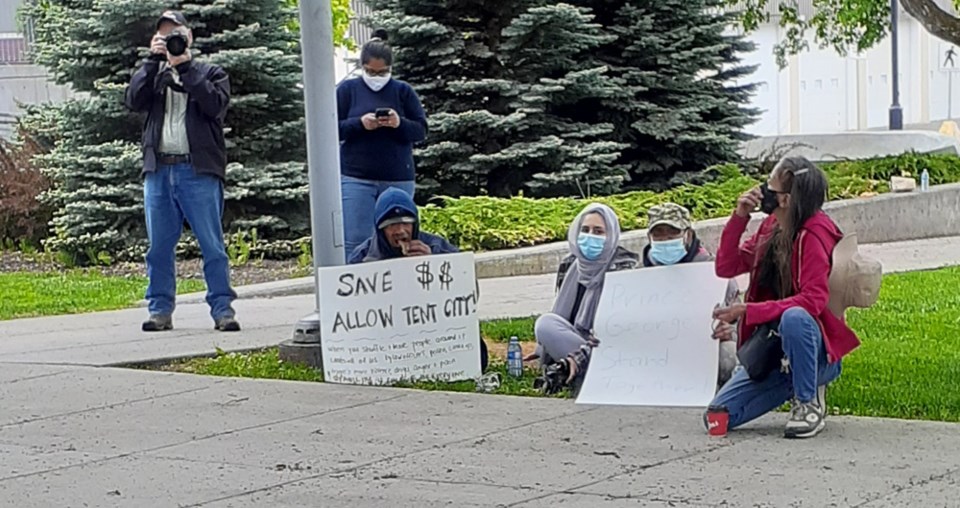Mayor Lyn Hall is 100 per cent correct that the City of Prince George is in no position to go it alone when it comes to dealing with complex problems like homelessness, mental health issues and the opioid crisis.
This is the problem of municipalities everywhere in B.C. and throughout Canada. At the core, these are health problems, which means they actually fall under provincial jurisdiction. Provincial governments across Canada, however, have been off-loading costs and responsibilities like this one onto municipalities for decades.
That’s left municipalities like Prince George scrambling to either find ways to deal with it on their own or form a variety of partnerships. In this specific situation, the problem is so big and complicated that multiple public sector agencies and non-profit groups are working together.
The spirit of collaboration between the city, B.C. Housing, the First Nations Health Authority, Northern Health and so on is fantastic but it comes with problems of its own. The health and social services agencies work under the harm reduction model. That model does reduce harm for their clients/patients but it comes with significant harm and cost to downtown business owners and operators.
And that doesn’t include the tragic end to an incredible social work career of Diane Nakamura, who suffered a horrible brain injury after being attacked on a downtown street by an addict who wanted her purse. Because she’s Diane, she’s devoted this next stage of her life to writing about brain injury and working with the Prince George Brain Injured Group (and her assailant has made promising first steps to turn his life around). Clearly, the victims here are not just the individuals living on the street and in tents. Business owners and operators, as well as their staff and customers, who have been physically and verbally assaulted, can’t be ignored.
Housing first is what Hall and everyone else at the table agree is the best way forward but the devil is always in the detail. What are the support services that come with the housing (and who will provide it)? What kind of housing and where? Who can access it? Can couples stay together? Can people drink or use drugs while there? What about people with behavioural issues? Does a tent city constitute housing?
Work is being done. Mayor and council deserve credit for spearheading the low-cost housing projects currently under construction on First Avenue, the Elizabeth Fry project on 15th Avenue and the Aboriginal Housing complex at 17th and Massey.
Allowing a temporary tent city for the people who won’t be able to access these housing options once they are available comes with plenty of challenges. From a local government perspective, safety and security – not only for the campers but also for everyone else – has to be fully considered. Furthermore, there are legal considerations, from personal injury liability and employee safety to possible court challenges once the city would order the tent city dismantled.
The discussion and the rallies and the high public interest are all good, except for the folks driving past the homeless or raging in our opinion section or on Facebook that “these people” should “just get a job.”
Thanks, tips. You’re entitled to your opinion.
Meanwhile, for the adults in the room working toward meaningful, humanitarian help, the struggle continues.
Many hands make lighter work, the old saying goes.
It won’t be perfect. In fact, it’ll be messy, since the partners at the table have different priorities.
But the more everyone gets behind substantive efforts to help the individuals involved and to address the significant issues they are facing, the better off everyone will be, in both the short and long term.
- Editor-in-chief Neil Godbout



